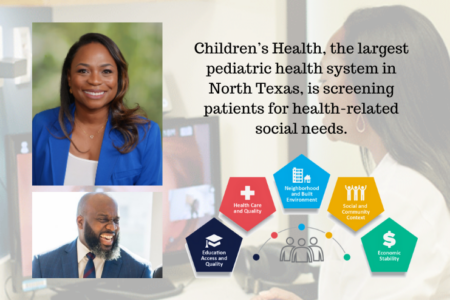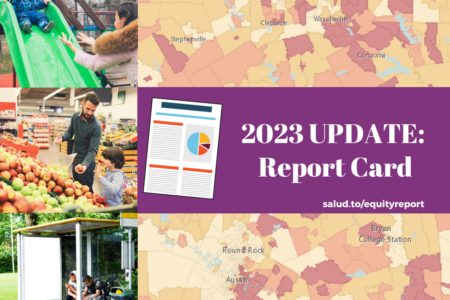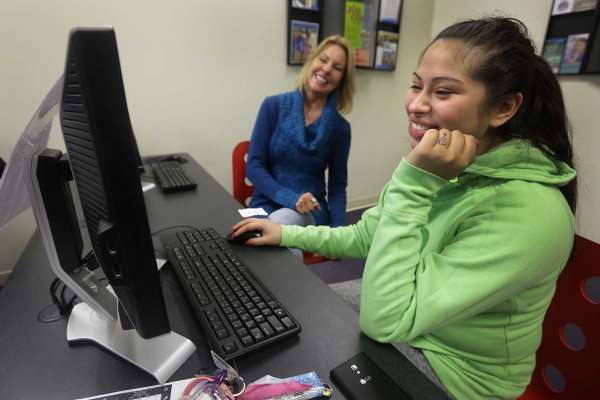
Share On Social!
The foster care system aims to support children whose parents can’t support them.
But what happens when those children grow up and leave the system at age 18, and are not prepared for life on their own? Within a year, 40% of foster youth are homeless. Others are pregnant or in jail.
Elaine Andries Hartle hates to see it.
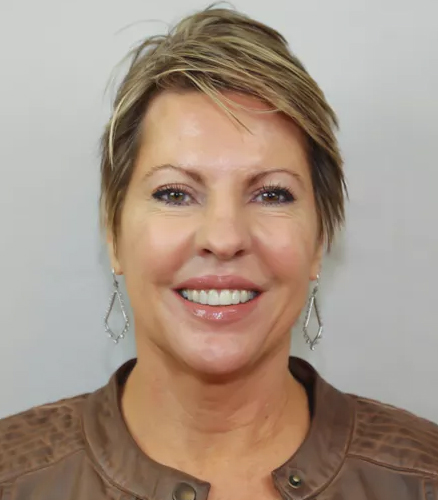
That’s why Hartle, leader of the THRU Project, works to bridge the gap between foster care and a life of health and independence for youth as they age out of the foster care system in San Antonio (63% Latino).
“It’s really hard to improve your life if you don’t know where you’re staying tonight and, unfortunately, there are just very few transitional living programs in San Antonio that can teach these kids to live independently,” Hartle told KSAT News. “Even if they get an apartment on their own somehow, they usually lose it because they don’t understand everything that’s involved with living on your own.”
But how could her program increasingly help with housing issues?
Hartle’s First Experience with Foster Children
Hartle spent 15 years in sales and management in the medical insurance field.
Then she became the foster mother to two teen sons. While researching the benefits available for her foster sons, she learned that few foster youth have a trusted adult to guide and support them after foster care.
“The biggest [problem with foster care] in Texas, well nationwide, is that foster care is supposed to be a very short-term layer between reuniting children with their biological family or getting them adopted, but there’s so much back and forth now that more and more youth are growing up in this system that’s not what’s meant to be,” Hartle said. “So you have youth that by the time they are in their teens have been in 15 or 20 different places. So there’s just a lack of security, a lack of a constant force in their lives, and those are big struggles.”
Hartle had an idea: Start a group to pair foster youth with a mentor to prepare them for life after foster care.
In 2011, she and Steve O’Donnell brought the idea to the community of Unity Church of San Antonio. They responded with overwhelming support.
The THRU Project was born.
How the THRU Project Helps Foster Care Children
Starting in 2012, funded by donations, the THRU Project has provided foster youth ages 14 and up with a volunteer mentor.
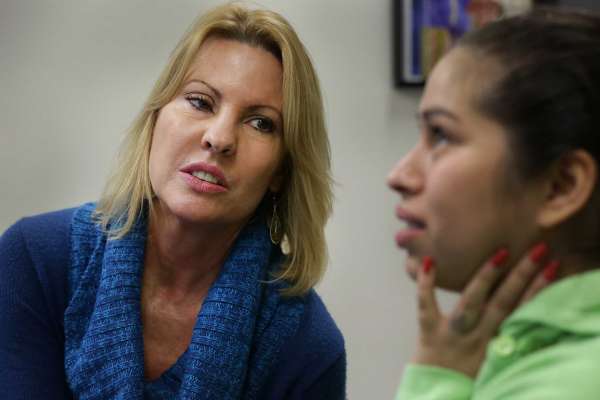
They also give free bus passes and cell phones, and crucial life skills training.
“We recruit and train adult volunteers to serve as mentors, and then match adults with youth for one-on-one mentorship,” according to the project website. “We offer the life skills training that many have never received…help them get a job, apply for college, set up their first apartment and navigate their finances.”
In 2014, THRU Project became a separate entity, gaining its nonprofit status.
But a growing need—lack of stable housing for foster youth after foster care ends—recently spurred the project to morph.
“You can have a mentor, you can have all the support in the world but if you don’t have a safe place to lay your head, you’re not really given a good chance to be successful,” Hartle said.
Homelessness among Foster Youth
Some estimates show that 25% of foster care youth will experience homelessness within four years after foster care ends.
“There’s no parents to go to. There’s no way to borrow money for your first apartment,” Hartle told KSAT-TV. “A lot of these youth will maybe try to be nice and let someone stay at their apartment, and they’re evicted because of it, and then they’ve got that on their record.”
So the THRU Project added a new component in 2018: The Next Step program.
The program provides 10 participants a rent-free apartment for a year. In return, the youth must attend school or work full time. They also must take life skills classes. They also have to put at least $250 a month into a savings account monitored by the THRU Project.
“At the end of the year, they will have the savings. They will have that safety net. They’re going to have the life skills, and they’re going to have the support they need to live independently,” Hartle said. “It is so exciting. These are remarkable young men and women and, just given the opportunity, it’s amazing they can take it and run.”
In its first year, four of the 10 participants graduated to independent living. Another four will do so in 2019, KSAT-TV reports.
This success spurred a new facet of the Next Step program.
Housing Vouchers for Foster Care Youth
Hartle met with representatives of the San Antonio Housing Authority (SAHA) to expand the THRU Project’s Next Step program.
In August 2019, the U.S. Department of Housing and Urban Development approved an agreement between SAHA and THRU. SAHA will provide 10 project-based vouchers for the Next Step program, which will provide a rent-free apartment to former foster youth who are accepted into the housing program, KSAT-TV reports.
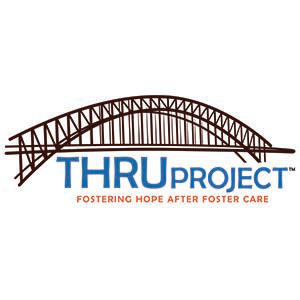 “I had the opportunity to meet with Elaine [Hartle] and look at their program and saw that what they had in place really was something solid,” Brandee Perez, San Antonio Housing Authority’s director of Federal Housing Programs, told KSAT-TV. “I think as we continue to see this success, and obviously there’s still going to be the need in our community, that we will evaluate the pilot program and look to expand it.”
“I had the opportunity to meet with Elaine [Hartle] and look at their program and saw that what they had in place really was something solid,” Brandee Perez, San Antonio Housing Authority’s director of Federal Housing Programs, told KSAT-TV. “I think as we continue to see this success, and obviously there’s still going to be the need in our community, that we will evaluate the pilot program and look to expand it.”
Hartle is excited for the partnership.
“We’re just so thrilled to know that these kids have a safe place to sleep at night,” Hartle said. “The whole goal here is to make sure they can be independent like everyone else, which is what they want to do.”
Is the Program Working for Foster Care Youth?
The program has helped countless youth.
“[The THRU Project] changes the youth’s life and gives them an opportunity for a better future”, Hartle said.
Take, for example, Jessica Urias.
Urias entered the foster care system at age 10. She spent time in 15 different foster homes. When she turned 18, she spent three months homeless.
“I had really not a lot a lot of knowledge to understand what was the right thing and the wrong to to do, as an adult,” Urias said in a YouTube video. “I did want to make responsible decisions, but I just really didn’t understand.”
Urias gained access to a mentor from the THRU Project.
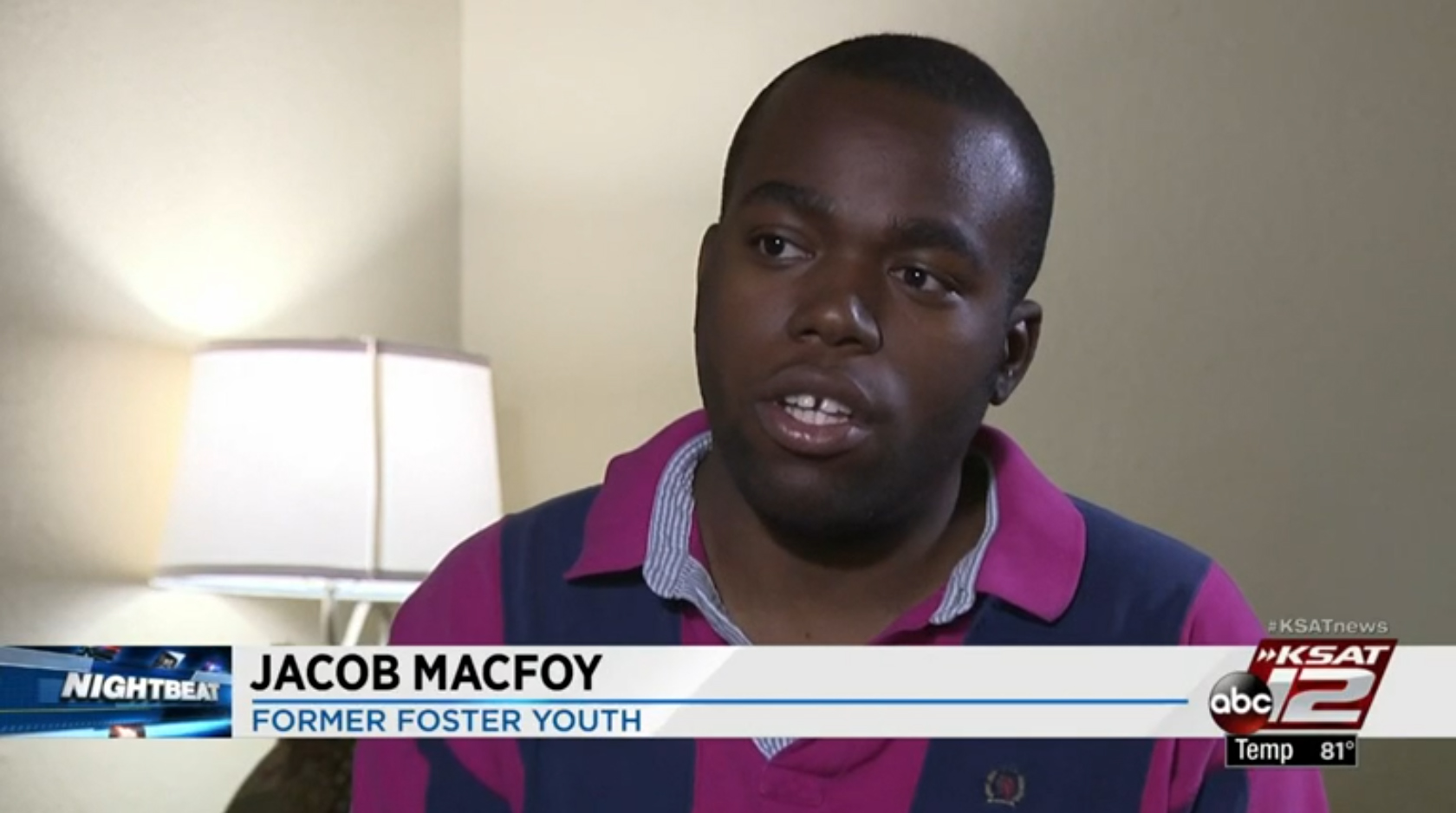
“If it wasn’t for [my mentor], a lot of the decision that I made in my life, like buying a new car, or getting my credit in good standing, those are the things that she taught me, that she helped me with step by step,” she said.
Jacob Macfoy, 23, participated in the THRU Project’s Next Step program.
At age 18, he was homeless, living out of his car. He would donate plasma just to get enough money to eat.
But the program has helped him manage his money, pay bills, and keep his apartment when he was between jobs.
“When I lost my job, they saved me from being evicted from here. That was really scary, but at least I had something to fall back on,” Macfoy told KSAT-TV. “They taught us financial literacy, and it helped us be able to set money aside to pay our bills and not spend money on stuff we don’t need.”
How Can You Help?
Children are aging out of foster care every day. Many are not ready for life, handling money, and housing.
They need a mentor.
Hartle’s THRU Project enables people to become that mentor.
“Having a mentor can make the difference between statistic or success. If you choose to become a mentor with THRU Project, you could be the first guiding force and consistent contact in that youth’s life who hasn’t been paid for by the state,” according to project website.
Be a mentor!
Check out this link for more details: https://www.thruproject.org/volunteer.
Explore More:
HousingBy The Numbers
56.9
percent
of Latinos are "housing cost burdened"
This success story was produced by Salud America! with support from the Robert Wood Johnson Foundation.
The stories are intended for educational and informative purposes. References to specific policymakers, individuals, schools, policies, or companies have been included solely to advance these purposes and do not constitute an endorsement, sponsorship, or recommendation. Stories are based on and told by real community members and are the opinions and views of the individuals whose stories are told. Organization and activities described were not supported by Salud America! or the Robert Wood Johnson Foundation and do not necessarily represent the views of Salud America! or the Robert Wood Johnson Foundation.


